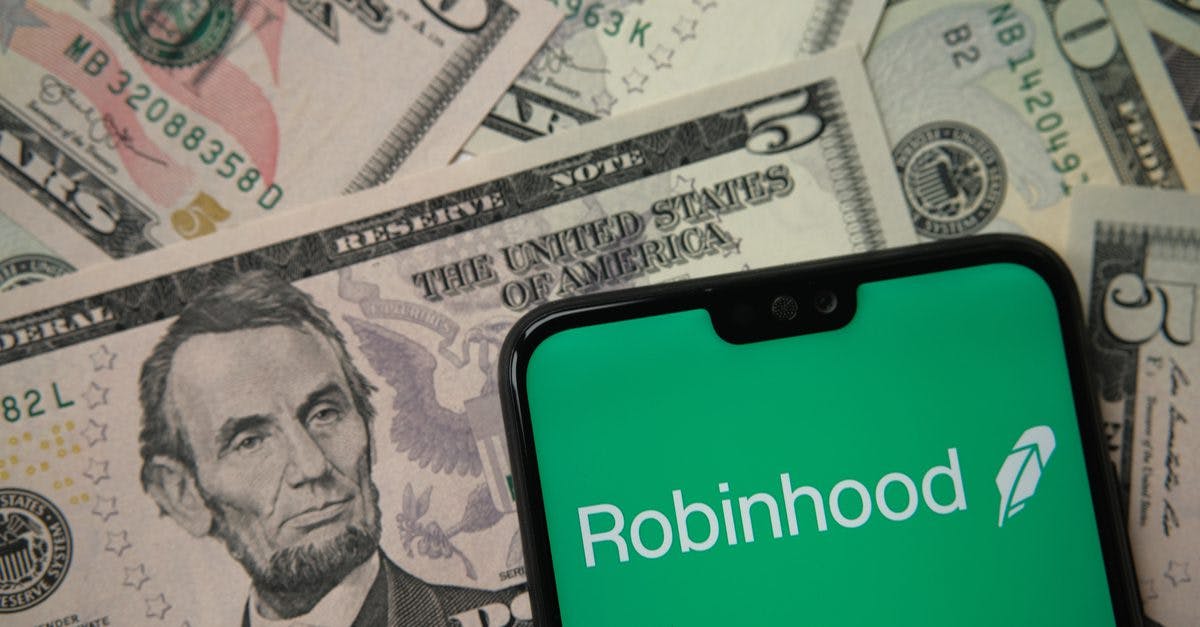Robinhood Ranks as Top Trade on Fidelity Upon Debut
Robinhood may not have had its IPO ‘pop,’ but retail investors are buying the dip, showing that market confidence for the trading app is high.

Source: Shutterstock
- Robinhood was the top trade on Fidelity’s retail platform following its public market debut Thursday
- The trading app fell more than 8% at the close Thursday, but retail interest remains strong
In one of the most highly anticipated initial public offerings (IPO) of the year, zero-fee stock trading app Robinhood made its public market debut Thursday.
Shares of the popular retail trading platform (ticker HOOD) closed more than 8% lower Thursday after ranking as the top trade on Fidelity’s retail platform earlier in the session. There were 38,000 total HOOD transactions on Fidelity Thursday, and 81% were ‘buys,’ showing that the age-old sentiment “buy the dip” is alive and well.
“‘Buy the dip’ is obviously an old phrase, it goes back well before retail traders, or at least this version of retail traders, had online trading,” said Nicholas Colas, co-founder of DataTrek Research. “It basically is just a fundamental indicator of confidence in the market, when you see stocks pull back, you have enough people come in to buy them that it forms a base, the stock stops going down, confidence is renewed and things move on from there.”
It’s not like the most academically rigorous concept, Colas admitted, but watching dip buys can reveal a lot about market sentiment. If a stock goes down, do investors have confidence in the name enough to buy?
“It is an asymmetric but interesting indicator of market confidence that people will step in to buy when a stock is down,” said Colas.
Typically, IPOs are priced to encourage a ‘pop,’ or a significant, usually 10% to 15%, increase in the first days of trading. When a stock doesn’t hit this target, it is usually seen as an unsuccessful debut with weak investor demand. In the case of Robinhood, however, the opposite may be true.
“When an IPO breaks so quickly after the first print, that’s not a great sign,” said Colas. “So, seeing people buy Robinhood, especially on a quasi-busted IPO, is a real sign of confidence that they believe in that business model and believe in the future of the company.”
Robinhood, founded in 2013, has fundamentally changed retail trading. When the startup launched, most online brokerages charged around $5 to $8 per trade, at least. Robinhood’s zero-fee platform was disruptive enough to force other platforms to do the same.
Robhinhood’s success, Colas believes, revolves around whether or not the company can expand on retail trading and find new areas of disruption.
“I’m a big believer in the power of the retail model, and the same thing goes for Coinbase, for example, I think there is a large future for that kind of company,” Colas said. “It does revolve around how much they can get beyond just being a stock trading platform, same with Coinbase, for that matter, but it will be a matter of what else they can do with that to engage their customers.”
As of 11:20AM Friday, Robinhood was ranked fourth on Fidelity’s platform with 9,165 trades, 7,180 of which were buys. Shares were trading at $36.30 at time of publication, down from its opening price of $38.
Want more investor-focused content on digital assets? Join us September 13th and 14th for the Digital Asset Summit (DAS) in NYC. Use code ARTICLE for $75 off your ticket. Buy it now.






